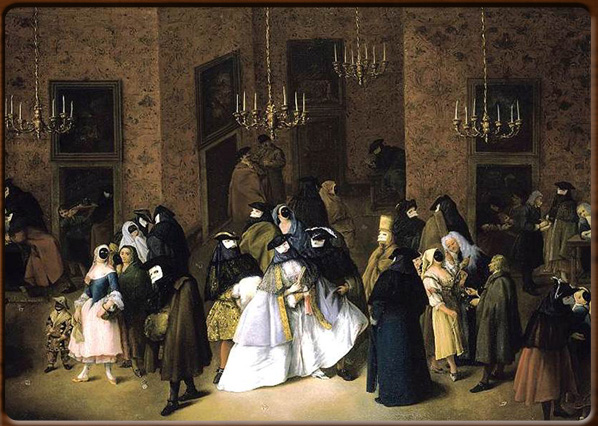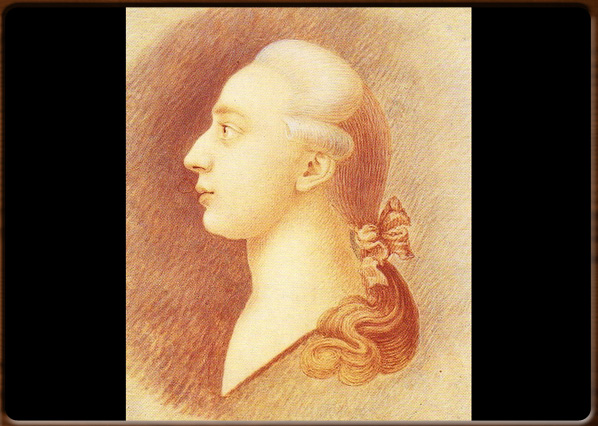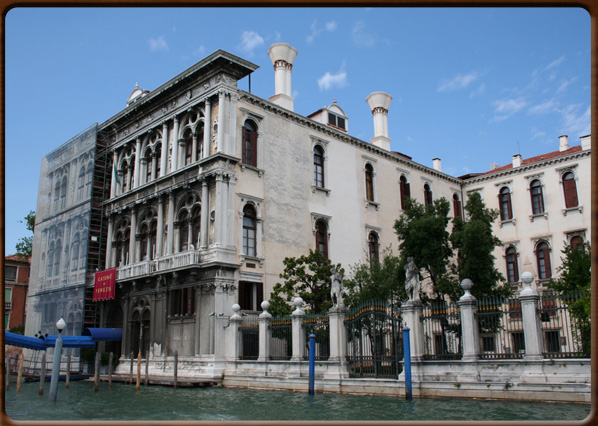
The Venice Ridotto, 1750, Pietro Longhi

Casanova,

Palace Vendramin Calergi, Municipal Casino today .



No video
In an effort to control the widespread vice of gambling in Venice in the 1600s, the State granted permission to several aristocrats to use their property as gaming houses, called “ridotti” (literally, lobbies and now known as casinos). These replaced the mediaeval “baratterie”, the only places where gambling was permitted as this was generally banned in public squares and in the vicinity of churches.
The first ridotto was set up in 1638 in a palace belonging to the noble family of Dandolo di San Moisè: this is now held to be the first public casino in Europe. This, like the others that followed, stayed open during the carnival period and was popular with the nobility patricians who, obliged to wear masks at all time, would spend entire days and nights around the gambling tables.
These ridotti became centres of attraction during Carnevale and especially so in the 1700s: they were ideal for people like Giacomo Casanova who used them as the perfect stage for his adventures.
In fact, the ridotti were not just used for gambling, but also for conservation, snacks and coffee. For instance, there were ten rooms for gamblers and nearly as many drawing rooms for entertainment in the Dan Moisè ridotto.
“Gambling fever” in Venice grew to such a point that, hiding behind the anonymity of their masks, many Italian and foreign princes and nobles would gamble away their entire inheritance, aided and abetted by the croupiers, the so-called “barnabotti”, the only people not obliged to wear a mask.
As a result the Greater Council was forced to close the public casinos in 1774 after so many Venetian nobles had ruined themselves by gambling.
1600 - 1700 - - rev. 0.1.5